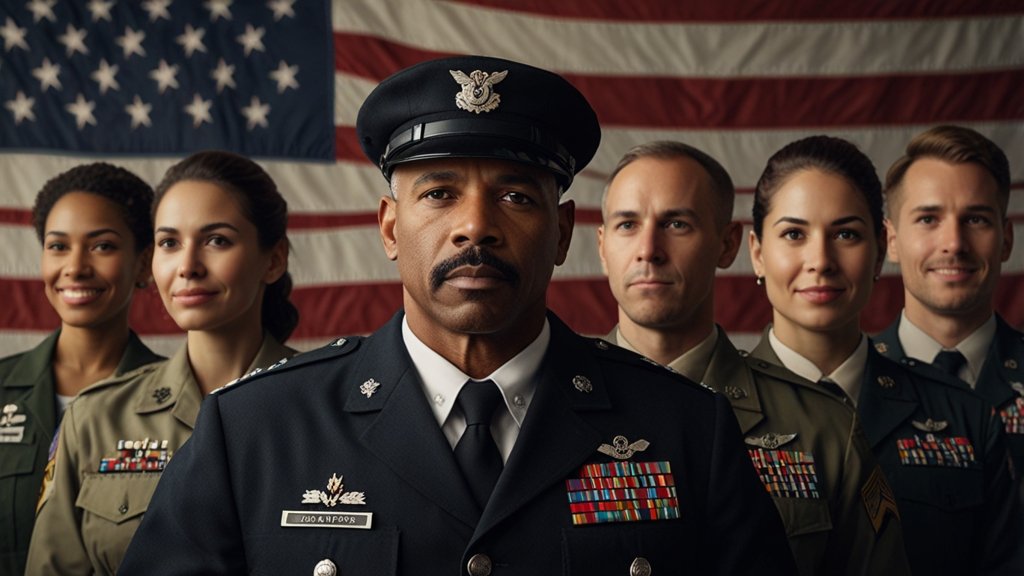Table of Contents
- Veterans’ Top Challenges After Service
- The Crucial Role of Community Support
- Education and Workforce Opportunities for Veterans
- Addressing Veteran Mental Health
- Organizations Leading the Way
- Stories of Resilience and Inspiration
- Fostering Goodwill: Long-Term Community Impact
- How You Can Support Veterans Today
Veterans’ Top Challenges After Service
Returning veterans face numerous challenges in civilian life, including adjusting to a new daily routine and pursuing long-term goals. The transition from a structured environment to a more ambiguous one can cause uncertainty and difficulty in finding a new identity, career, or community. The challenges facing returning veterans include economic hardship, emotional distress, and higher rates of unemployment and homelessness compared to non-veterans. Some veterans also suffer from visible or invisible injuries, leading to feelings of isolation. The loss of daily camaraderie can make tasks like networking and job applications daunting. The transition process requires coordinated support, compassion, and actionable solutions.
The Crucial Role of Community Support
Community support systems can be lifelines for veterans and their families, offering practical assistance and emotional support. Local organizations, neighborhood groups, and volunteer collectives can help reach those in need. Services such as legal clinics, financial literacy workshops, and peer mentorship programs help facilitate smooth integration and reduce social isolation. Communities that rally behind veterans can organize regular events, such as group meals, career fairs, and counseling sessions, to foster a sense of belonging and visibility. Support is not limited to veterans; families also receive benefits like educational seminars and group activities. These efforts reinforce the reality that no veteran should have to navigate their return alone, creating an inclusive environment where veterans and civilians share experiences and grow together.
Education and Workforce Opportunities for Veterans
The GI Bill has enabled millions of veterans to continue their education and retrain for civilian careers, with numerous colleges and trade schools offering specialized services for veterans. Over the past nine years, the US has invested $91 billion in education benefits for veterans, demonstrating the nation’s commitment to empowering former service members. Workforce opportunities are also expanding, with job placement programs, skills translation workshops, and job fairs designed to help veterans transition smoothly into the workforce. Organizations offer resume consultations and interview coaching to bridge the gap between military skills and civilian terms. These interventions not only help veterans find rewarding jobs but also enable employers to become more veteran-friendly, resulting in more diverse and resilient teams across various industries.
Addressing Veteran Mental Health
Mental health is a crucial aspect of the veteran experience, often overlooked due to stigma and fear of misunderstanding. To support mental health, communities should normalize conversations, increase access to resources, and focus on prevention rather than intervention. Strategies include expanding telehealth counseling, promoting confidential services, and fostering peer-to-peer support networks. Education for families, friends, and employers can help recognize and respond to mental health needs. Holistic care, including yoga, art therapy, meditation classes, and outdoor retreats, is also being promoted to prioritize overall wellness and mental health as much as physical health, which improves outcomes for individuals, families, and the community.
Organizations Leading the Way
Specialized organizations in the United States are dedicated to supporting veterans through various services, including employment assistance, legal aid, wellness retreats, and leadership training. Many are led by veterans themselves, providing an authentic understanding of their challenges. Their innovative approaches include adaptive sports leagues, equine therapy, financial planning seminars, and advocacy campaigns for systemic reform. These collective efforts not only address individual needs but also spur positive change on a larger scale by advocating for veteran-friendly policies. Their programs provide rapid assistance during crises and offer long-term growth pathways, demonstrating that each veteran makes valuable contributions beyond their military service.
Stories of Resilience and Inspiration
Every community has stories of veterans who have inspired others by overcoming adversity. Some veterans, after facing periods of homelessness, have channeled adversity into strength by building thriving businesses, launching nonprofit organizations, or volunteering to help others. Through the support of mentorship programs and educational opportunities, they have achieved stability and become role models in their communities.
These narratives not only underscore the importance of support but also highlight the remarkable resilience and creativity veterans often demonstrate. By sharing these stories at local events, in news articles, or in schools, communities foster empathy and understanding. It, in turn, motivates more people to get involved, supporting even more veterans on their journey.
Fostering Goodwill: Long-Term Community Impact
The support of veterans extends beyond individual recipients, as it boosts local economies, reduces homelessness and unemployment, and increases civic engagement. The Pew Research Center states that honoring and supporting veterans is essential to a nation’s character. Robust veteran programs lead to measurable reductions in poverty and housing insecurity. Veterans who receive support are more likely to volunteer and become community leaders. Empowering veterans to start their businesses or pursue advanced training benefits local businesses and economies. A culture of support fosters unity, empathy, and shared purpose, strengthening the social fabric. These initiatives last for generations, shaping healthier, more connected communities and promoting hope for those transitioning from service.
How You Can Support Veterans Today
To create a welcoming environment for returning veterans, everyone can contribute through small acts such as volunteering, supporting veteran-owned businesses, and checking in on their neighbors. Educating oneself about available resources and sharing them with others can also have a significant impact. Small steps include donating to reputable organizations, offering pro bono services, participating in community awareness events, volunteering for mentorship or job training programs, choosing veteran-owned businesses, promoting mental health conversations, advocating for policy changes to make education and healthcare more accessible, and extending kindness to others. By fostering a climate of understanding and shared purpose, everyone can contribute to the positive change.
YOU MAY ALSO LIKE: Aligning Business Goals with Government Strategy Through Public Affairs











